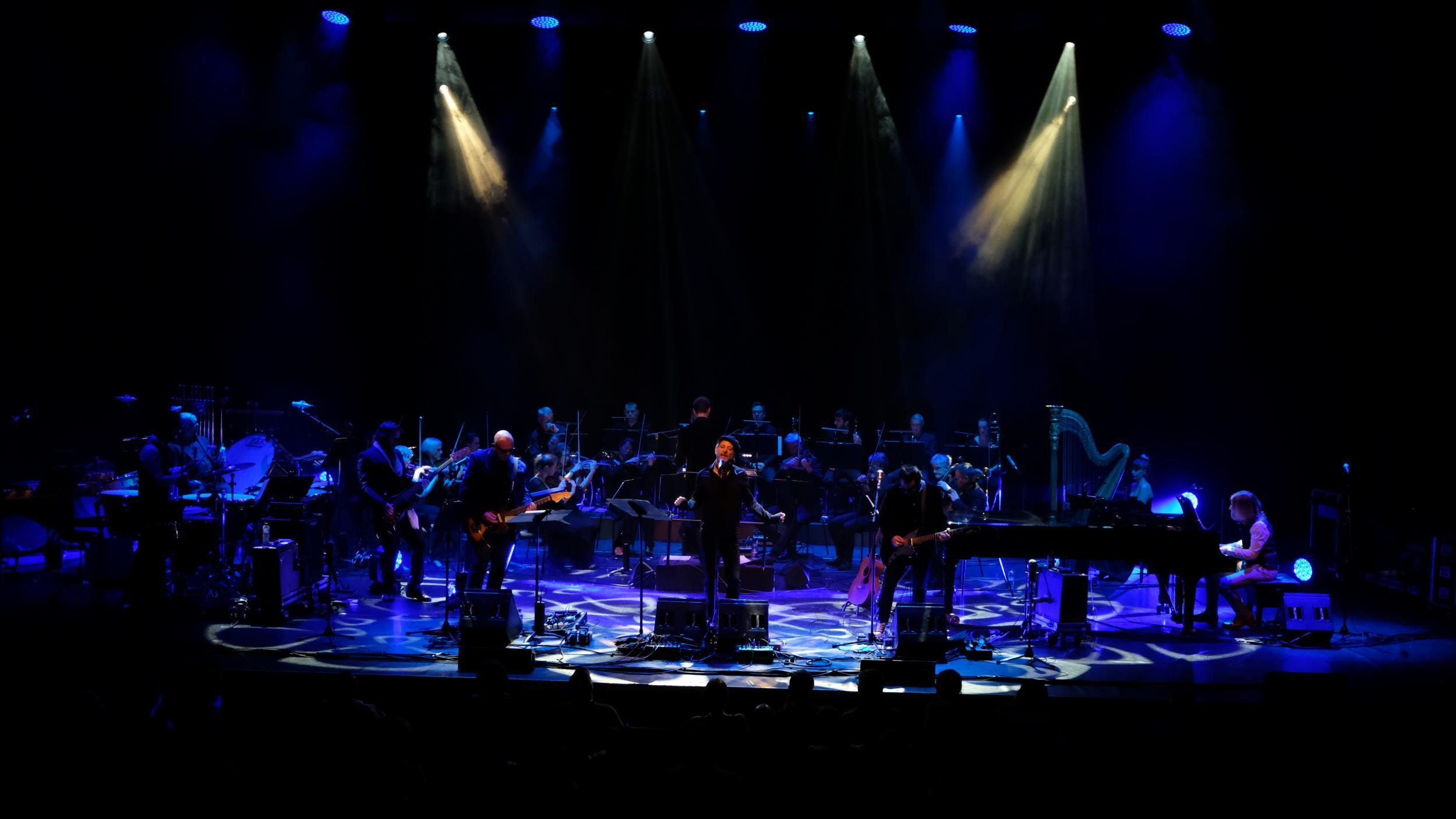Mercury Rev at the O2 Academy, Bristol, review: As dreamily timeless as ever
Orchestration was a large part of Mercury Rev’s transition from psych-rock weirdos, to – for a time – darlings of the music press

Surreal drama begins the evening. A seagull has weaselled its way into Colston Hall, caused a minor to-do and the resultant clear-up has uncovered some asbestos. Mercury Rev and the Royal Northern Sinfonia are required to cross the road, leaving the plush carpeting of Colston Hall for the sticky wooden floors of the O2 Academy Bristol.
What horror for the genteel Colston Hall-ers! However, while the revised venue makes for a less luxurious evening it ultimately proves to be a more intimate and rarified one. The band and the orchestra meld into one on the Academy’s bijou stage. Guitarists trip over violin cases, xylophone players are concealed behind drum kits, Jonathan Donahue, Mercury Rev’s grizzled frontman, even banters with an oboe player.
Donahue is a lead singer as imagined by Tim Burton – sparkling beard, spindly limbs and bulging eyes. Fellow founding member Grasshopper is more of a Tarantino fixer, soul patch and wind-tunnel hair intact, rock star shades seemingly glued in place these last 20 years.
The duo lead an orchestrated tour through the dreamier chapters of the band’s back catalogue and we are reminded that surreal drama is Mercury Rev’s stock-in-trade. “Hercules” is elevated from half-forgotten album track to uncanny, whirling saga. “Endlessly”, another otherworldly meditation, sounds glorious with orchestral backing.
Donahue explains the decision to work with the Royal Northern Sinfonia: “Grasshopper and I never dreamed of a Sid Vicious-style bassist, we dreamed of... an oboe.”
Of course, orchestration was a large part of Mercury Rev’s transition from psych-rock weirdos, to – for a time – darlings of the music press. Deserter’s Songs, from which we hear several songs tonight, was NME’s album of the year in 1998. This honour was not bestowed without merit, as illustrated by a gleeful prance through “Opus 40” and the always affecting “Holes”, which still sounds as dreamily timeless as ever – like the unhinged cousin of “We Have All the Time in the World”.
For all the harmonious collaboration, however, it’s clear we are witnessing two worlds colliding. On one occasion the baton falls to mark the end of a song and our conductor looks round grinning as the band carries on playing. Donahue also admits he is desperate – although woefully underqualified – to hijack said baton.
But the warmth radiating about the stage and the band’s clear willingness to share equal billing with their classical counterparts is more than enough to unite these two worlds. Mostly to thank for this is Donahue, who finally has a crack at conducting, albeit with a lightsabre.
Subscribe to Independent Premium to bookmark this article
Want to bookmark your favourite articles and stories to read or reference later? Start your Independent Premium subscription today.

Join our commenting forum
Join thought-provoking conversations, follow other Independent readers and see their replies